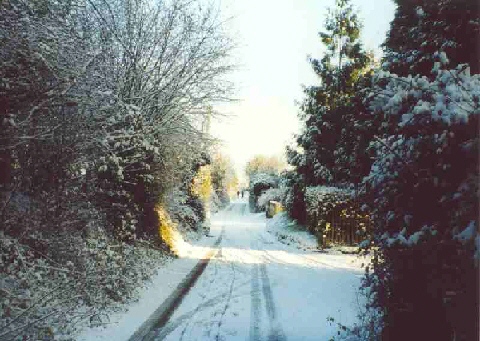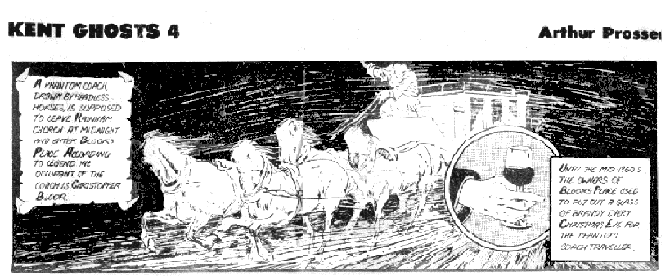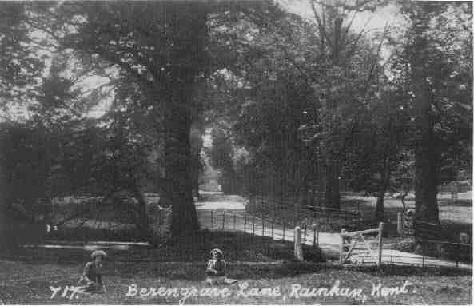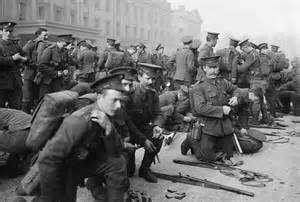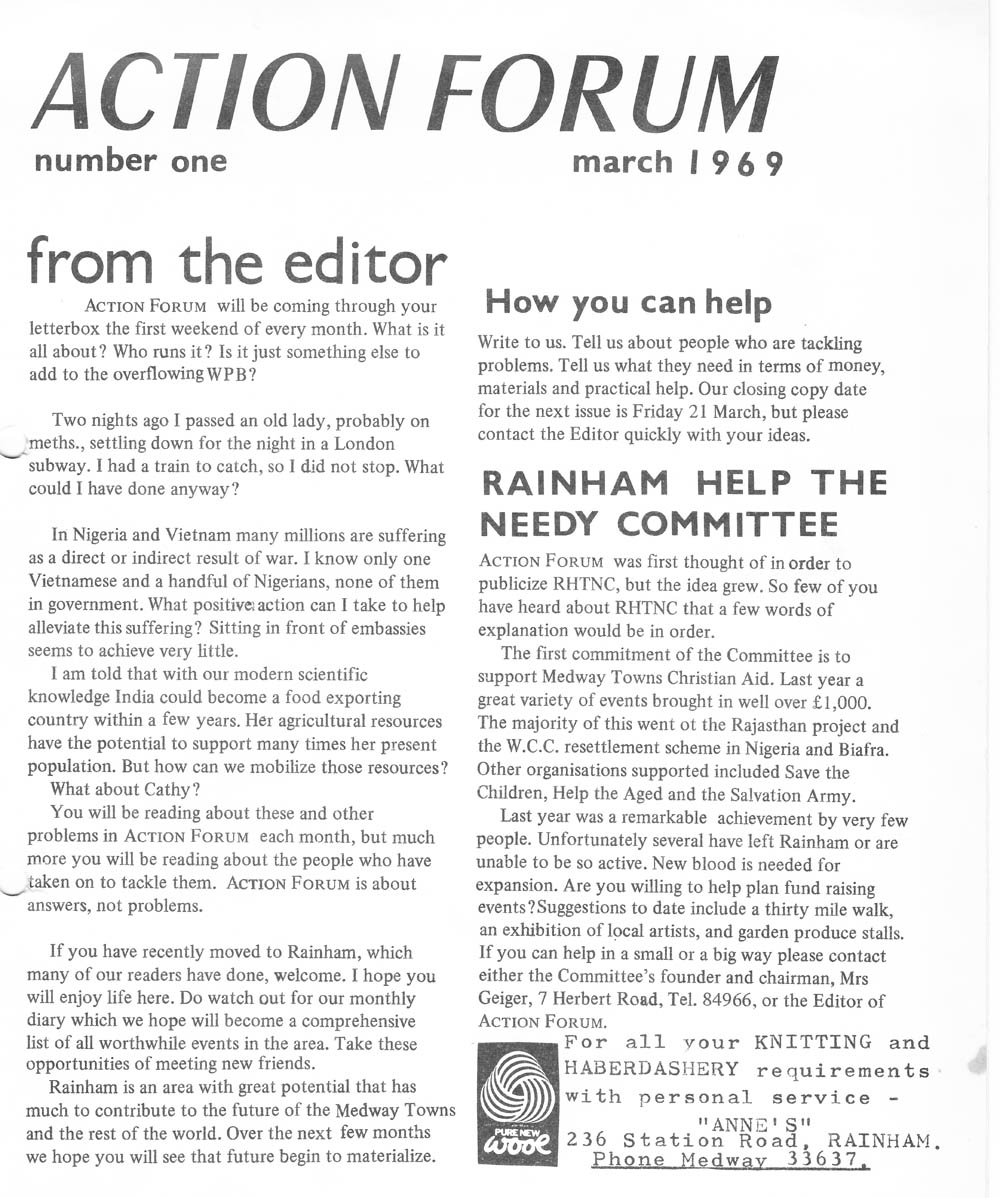Letters from Rainham Brothers Serving in Gallipoli, 1915
Reg Wickens and his brother Seymour from Station Road in Rainham, joined the 1st Royal East Kent Mounted Rifles in 1915 and were sent to the Dardanelles where they fought the Turks at the Battle of Gallipoli. Both men sent letters home to their parents which were also published in the East Kent Gazette. Reg Wickens wrote in December 1915:
‘We arrived here safely after a good voyage. Bert and I were not sick at all but some of the boys were very bad. We were chased by a submarine once but got clear aright. We have been up to the firing line several times and are getting quite used to it now. The last time we went up there the Turks gave us a warning time. They have got a short range gun which fires a very large shell and all the afternoon they gave it us hot and strong but did no damage to speak of, only knocked the trenches about a bit. But we paid them back with interest.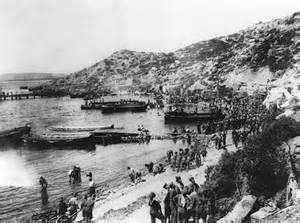
We had no casualties in our trenches but several were killed and injured in the supports. We came out of the firing line on November 13th and had to proceed to the base for a fortnight’s fatigue. We are living in a little hut we built ourselves to keep the rain off. We have been washed out twice. I lost my blankets and hat, but my chum Sid Bonny gave me a spare one he had. On Monday December 16th our lads took two lines of Turkish trenches with very little loss of life, and ever since then they have been trying to take them back again. On Sunday November 20th they made a big attempt to regain them and we had to go up and join the rest of our regiment but by the time we arrived our big guns and lads in the trenches had driven them back; so we had a lost journey.
We are now back working in the stone quarry, getting rock to build piers. We have several work days to do here and then back to the firing line, thank goodness, for we would both rather be in the firing line as it is much safer and fine sport popping the Turks off. The ‘Tommy Cooker’ you sent we find very useful in the firing line as in some trenches where they are only twenty yards apart. We are not allowed to have a fire for fear of the Turks seeing it.
I spent a very happy birthday – was down a mine under a Turkish trench, on guard all day. But we don’t take any notice of that kind of job, we’re getting used to it. The job we are on now is down by the sea, on guard during the night, the rest of the time we have to ourselves….’
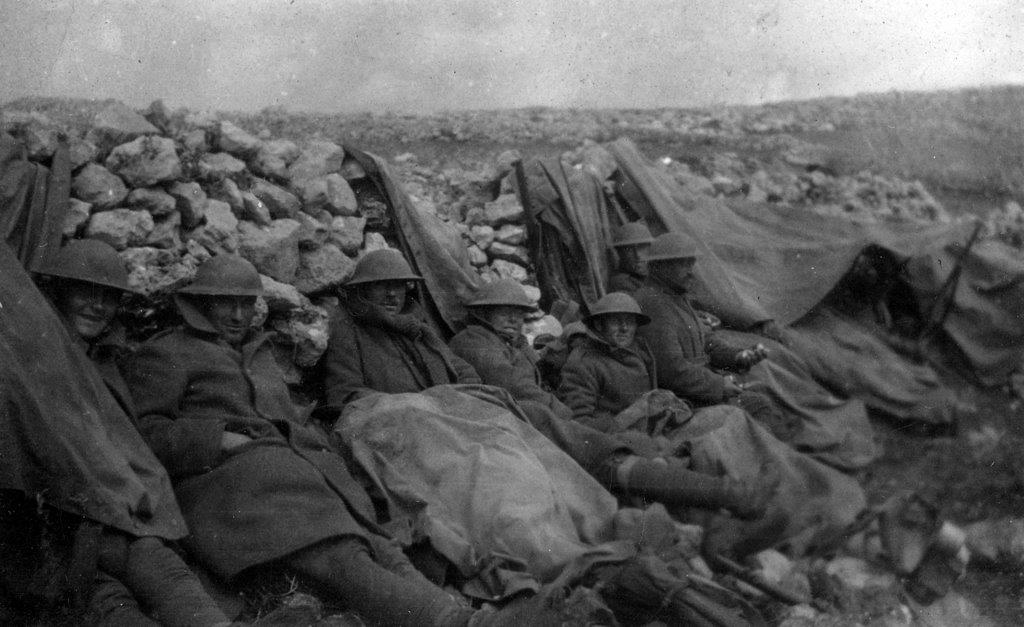
Seymour Wickens also wrote home about his experiences and the letter appeared in the East Kent Gazette dated February 16th, 1916.
‘After starting from Liverpool we were not supposed to stop until we reached Lemnos but while in mid ocean we sighted two small rowing boats which afterwards we found out were lifeboats with French sailors in them, who had been torpedoed. We stopped to pick them up and about an hour afterwards we were chased by a submarine and were supposed to have been fired at. Of course everybody was on deck with lifebelts after hearing the alarm which was enough to frighten anybody, and it was only the skilful way in which the captain of the ship turned round and headed in the opposite direction to which we were going that saved us. At night we turned back, and I think we must have gone about 25 or 26 knots an hour. The next day we reached Lemnos and stayed on the boat for seven days. Then we got off on to smaller boats and went to Cape Helles at night where we landed. We had to march the matter of a mile or two when we found ourselves in the third line of trenches with bullets whistling over our heads. That was our first experience of active service. About a week afterwards we went into the firing line for three days and I think we had about five killed and wounded. But I must say this, the Turks are very fair fighters. It is not owing to the Turks unfairness that we had such a rough time; it was owing to the rough ground and the hard work to get water and food. You could hear nothing else but the cry for water all day long. If we got a bottle full, we had to hide it up and say nothing about it, otherwise we would get a crowd round us asking for a drink and get none ourselves.
We used to have spells in and out of the trenches in the firing line for fourteen days, and out for what was supposed to be a rest for fourteen days; but the rest was jolly hard work, either digging new trenches or making roads during the day and unloading provisions during the night.
Wherever we went we had to make our own dug outs with the sky as a roof. I remember one night it rained and everybody was washed out with everything floating down the gully. The next day one chap I know, he comes from Gillingham, was walking about with a towel round him while his clothes dried. As for shells, we could not walk about anywhere without having a shell drop somewhere near us, and, of course, we had to bob down anywhere to get out of the way. Once Johnny Turk gave us forty two hours to shift one of our hospitals, because he thought we were landing troops and food under cover of it, so, of course, that was another job for us because he was dropping shells a bit too close to be healthy. On another occasion he gave us seventy two hours to get away from Cape Helles; if not he was going to blow us off, but instead of the British destroyers from the sea and the heavy guns on hand gave Johnny a warm time.
When the seventy two hours were up we thought Johnny Turk was short of rations so we sent him across some “iron rations” if you know what I mean - a few bullets and one or two big shells to go on with.
I think I must now finish up as you will get sick of reading, but one thing I want to say is that nobody except those who have been there to see will ever know what the men have been through in the Dardenelles.’
Shortly after he wrote this letter Seymour Wickens got shot in the wrist and the army had him evacuated to hospital in Malta but he did re-join his regiment after his recovery and later saw action in Palestine and France with his brother Reg. Their older brother Reuben became a corporal in the Coldstream Guards and served on the Western Front in France.
